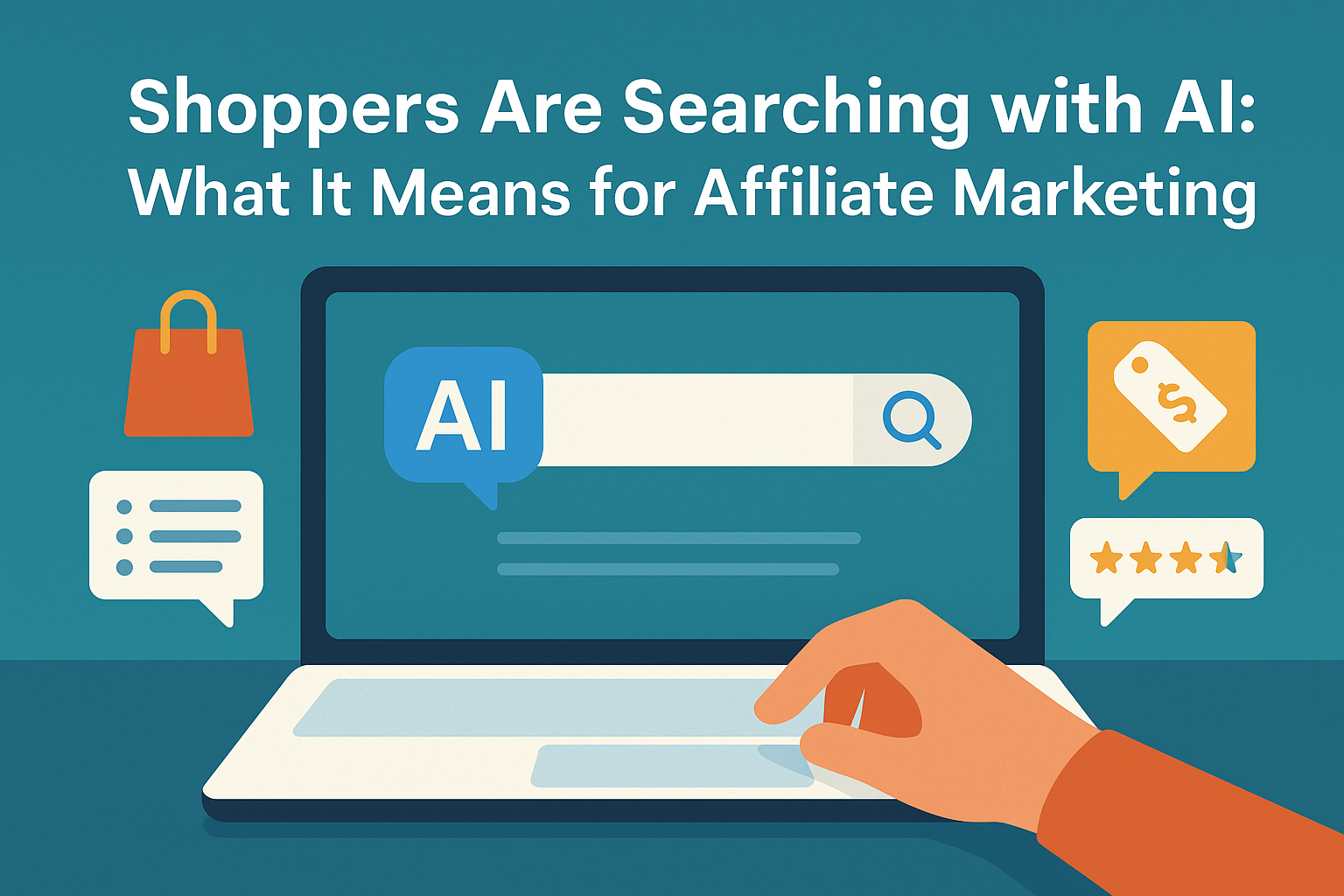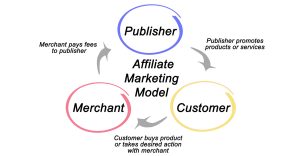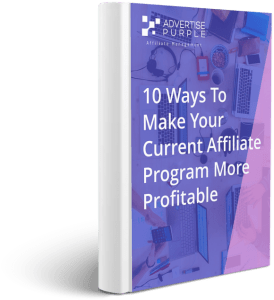
Share
Shoppers Are Searching with AI: What It Means for Affiliate Marketing
For years, “Google it” was the reflexive first step in any shopping journey. Whether hunting for the best skincare routine or a deal on new headphones, consumers started with a search bar — and Google happily monopolized that behavior. But in 2025, that landscape is shifting.
Shoppers are increasingly bypassing traditional search engines and turning to AI-powered tools like ChatGPT, Perplexity, TikTok’s new AI search, and Amazon’s in-house assistant Rufus. These platforms aren’t just tweaking the search experience — they’re fundamentally reshaping it. For affiliate marketers, that disruption is creating new pathways for discovery and conversion.
Why Shoppers Prefer AI for Search
AI tools are gaining traction because they solve the biggest friction in online shopping: information overload. Instead of scrolling through 20 pages of links, shoppers get immediate, conversational answers. Here’s why adoption is rising:
- Contextualized answers: AI summarizes reviews, ratings, and product comparisons, cutting research time in half.
- Hyper-personalization: Instead of typing in “running shoes,” consumers can specify “lightweight running shoes under $100 for trail runners with wide feet.”
- Speed and convenience: AI doesn’t just answer — it recommends, compares, and links to purchase in one seamless flow.
This marks a break from the keyword-driven model Google built its empire on. And as shoppers shift behavior, the ripple effect is reaching every corner of the affiliate ecosystem.
Cracks in the Search Monopoly
Google still commands immense reach, but the early warning signs are clear:
- Zero-click searches: More users are satisfied by AI-generated answers without ever clicking through to a website.
- Platform-native AI: TikTok’s AI-driven search is already the default entry point for Gen Z shoppers. Amazon’s Rufus is shaping purchase decisions mid-funnel.
- AI-first search tools: Perplexity, ChatGPT, and other emerging platforms are siphoning off early adopters who value curated, ad-light answers.
For affiliate marketers, this means the “classic funnel” — Google → publisher site → retailer — isn’t the only game in town anymore.
Why This Shift Benefits Affiliate Marketing
Affiliate marketing has always thrived on recommendation and trust. AI’s rise only amplifies that:
- More visibility for niche publishers: AI assistants often cite smaller, content-rich sites in their answers, rewarding affiliates with authoritative long-form content.
- Higher conversion intent: Many AI queries are purchase-ready (“What’s the best standing desk under $300 with free shipping?”). When affiliate links are surfaced in those answers, conversion rates climb.
- Diversification of traffic: As discovery shifts across TikTok, Amazon, and AI-driven platforms, affiliates aren’t dependent on a single source like Google.
Rather than shrinking the opportunity, AI is widening the playing field.
How Brands Can Capitalize
AI is rewriting the rules of affiliate discovery. Brands that want to scale their programs should think less about “SEO strategy” and more about “AI-era affiliate strategy.” Here’s how:
- Prioritize affiliates with AI-friendly content
Partner with publishers producing long-form reviews, “best of” lists, and buying guides. These assets are exactly what AI tools pull into recommendations. - Empower affiliates with rich product data
Provide partners with structured product feeds, FAQs, and key differentiators. The more complete the information, the more likely AI is to reference it. - Diversify affiliate mix across AI-native platforms
Recruit affiliates active on TikTok Shop, Amazon Influencer Program, and YouTube Shopping. These ecosystems are already embedding AI into search and recommendations. - Create incentives for affiliates to refresh content
AI favors fresh data. Encourage affiliates to keep reviews current by offering tiered commissions or bonuses for timely updates. - Experiment with AI-powered activations
Explore affiliates building AI-native tools — from shopping chatbots to real-time comparison engines. Early adoption here creates first-mover advantages.
The Bottom Line
Search is no longer a one-lane highway leading to Google. It’s splintering into multiple AI-driven pathways — conversational, contextual, and deeply intent-focused. For affiliate marketers, this isn’t a threat. It’s an opportunity to meet shoppers exactly where they’re making purchase decisions.
Brands that support their affiliates with better content, richer data, and diversified partnerships will be the ones who win as AI becomes the new front door to ecommerce.





